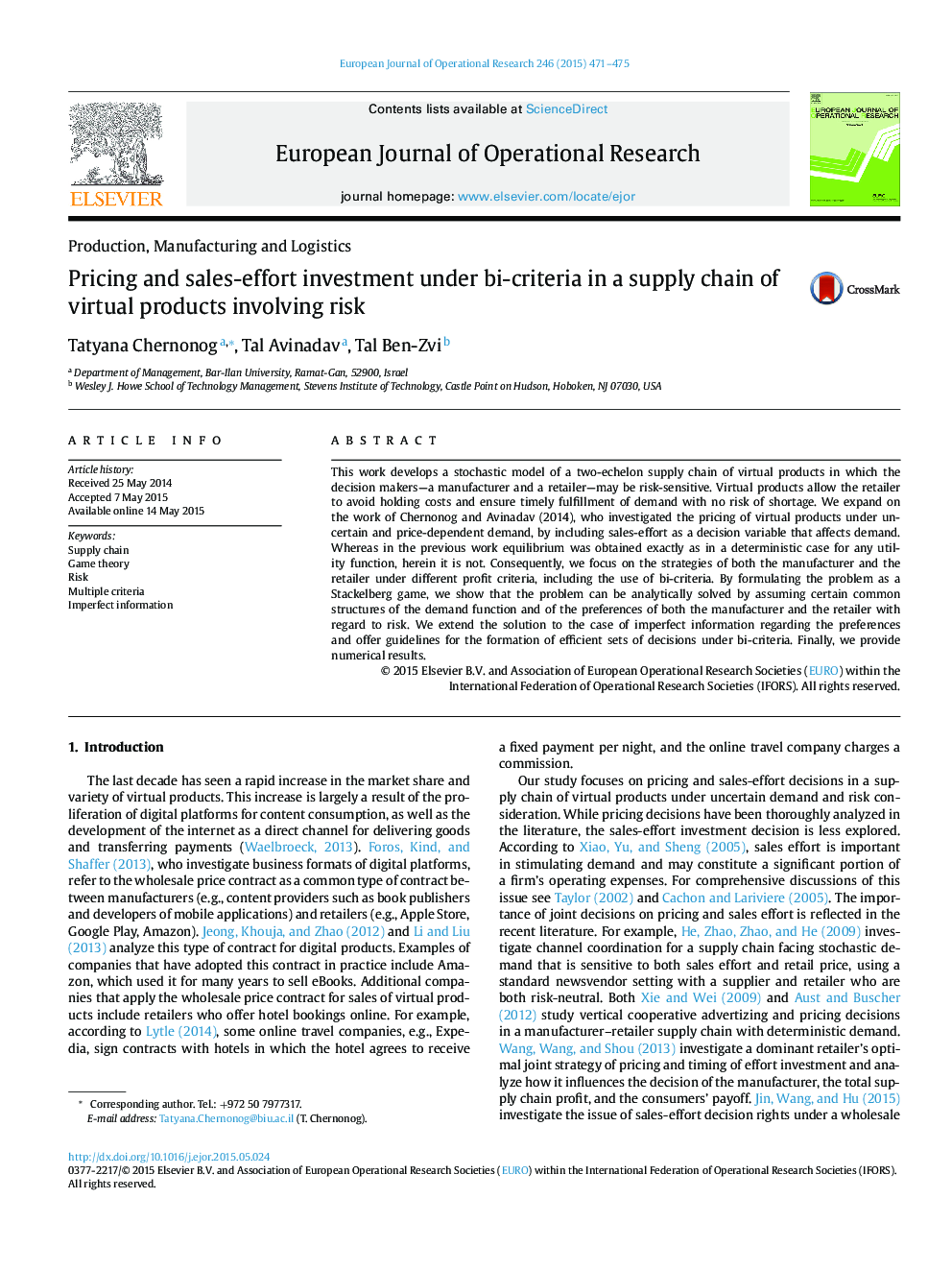| Article ID | Journal | Published Year | Pages | File Type |
|---|---|---|---|---|
| 476553 | European Journal of Operational Research | 2015 | 5 Pages |
•A single margin maximizes any utility function of the retailer.•A procedure to find the equilibrium under perfect information is suggested.•A procedure to find the equilibrium under imperfect information is suggested.•Specific results are provided for the expectation and the target criteria.•Constructing an efficient set under bi-criteria preferences and game approach.
This work develops a stochastic model of a two-echelon supply chain of virtual products in which the decision makers—a manufacturer and a retailer—may be risk-sensitive. Virtual products allow the retailer to avoid holding costs and ensure timely fulfillment of demand with no risk of shortage. We expand on the work of Chernonog and Avinadav (2014), who investigated the pricing of virtual products under uncertain and price-dependent demand, by including sales-effort as a decision variable that affects demand. Whereas in the previous work equilibrium was obtained exactly as in a deterministic case for any utility function, herein it is not. Consequently, we focus on the strategies of both the manufacturer and the retailer under different profit criteria, including the use of bi-criteria. By formulating the problem as a Stackelberg game, we show that the problem can be analytically solved by assuming certain common structures of the demand function and of the preferences of both the manufacturer and the retailer with regard to risk. We extend the solution to the case of imperfect information regarding the preferences and offer guidelines for the formation of efficient sets of decisions under bi-criteria. Finally, we provide numerical results.
